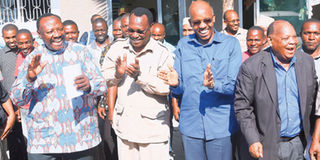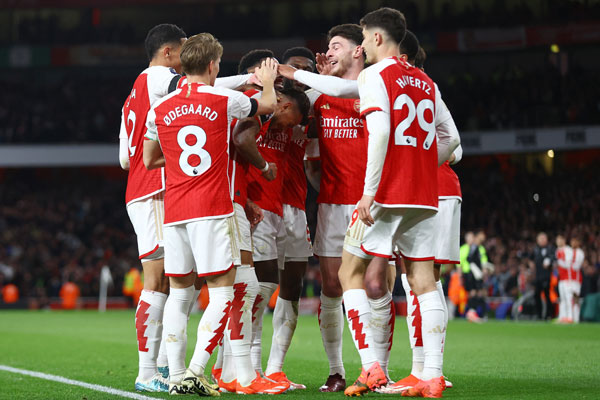Analysts call on Opposition to change startegy

What you need to know:
- The coming together of Chadema, CUF (Civil united Front), NLD (National League for Democracy) and NCCR-Mageuzi to form ‘Umoja wa Katiba ya Wananchi’ (Ukawa), was taken as the best direction for the opposition to overcome the ruling party for the first time since independence.
Dar es Salaam. Following the General election in 2015, the main opposition parties came together in a bid to form a coalition that will take them through the battle intended to remove the ruling Chama Cha Mapinduzi (CCM).
The coming together of Chadema, CUF (Civil united Front), NLD (National League for Democracy) and NCCR-Mageuzi to form ‘Umoja wa Katiba ya Wananchi’ (Ukawa), was taken as the best direction for the opposition to overcome the ruling party for the first time since independence.
However, Ukawa’s mission failed after a hot-contested Presidential poll, which saw President John Magufuli of CCM winning.
Since 2015, the Ukawa house has never settled. Some are said to have betrayed the union, some losing trust to their leaders and others even say that one political party is using others for its own benefit.
Currently the Civic United Front (CUF) is in an antagonism that has facilitated its division into two groups, one for Maalim Seif and the other for Prof Ibrahim Lipumba.
All this upheaval leads to a conclusion that one may say, the opposition still lacks a strategy to help them succeed in the competition they face with the ruling party. One may also say that the reasons for mass defection from the opposition are obviously known-Unsettled disputes within these parties.
Analysts are of the opinion that the opposition should rather reinvest in shaping their unity with only the political parties that strongly believe in Ukawa coalition and get a long-term strategy which will see their dream achieved as far as voters’ mobilization and win of trust is concerned.
The opposition is known as the only avenue to institutionally organize around different views of society. In modern society, it has a crucial function in the state and future governance in any particular nation. The unsettled controversy in Ukawa may be the last nail to end the opposition’s goal.
The primary function of the opposition is to offer a credible alternative to the majority in power. Moreover, by overseeing and criticizing the action of the government, it works to ensure transparency, integrity and efficiency in the conduct of public affairs and to prevent abuses by the authorities and individuals.
Wasting its potential
Today the opposition wastes its potential. For instance Prof Lipumba who initiated the Ukawa strategy, has now said the coalition-Chadema, is weakening CUF.
The latter reiterated recently to his counterpart Maalim Seif that he was cheering Ukawa which is weakening the Civic United Front party. Some ruling parties have always worked to deliver in accordance to their manifesto and the opposition everywhere in the world has to strategize in a way to win the majority’s trust.
Speaking to the political platform over the weekend Dr Philip Mshana, a political science lecturer at the University of Dar es Salaam says,
“The opposition needs to analyze the previous couple of elections. Its failures and the main constraints that make them lose their followers trust. They need to stitch together a party that is beginning to fall apart at its seams. Their focus will have to be on internal reforms, to develop a co-ordinate campaign and to create a clear political strategy on where the parties are heading at this testing era.”
The lecturer adds that, “all successful parties are entrenched in a political vision- a myth of who they represent. The opposition must have environmental goals that are deeply entrenched in economic and social reforms. The ongoing battle within CUF which has divided it into two halves, one in Ukawa and another one outside the coalition, will obviously kill the opposition’s strength and at the same time the ruling party as it seems will continue shining.”
For his side Prof Ibrahim Mugambi of Kampala International University opinionates that, “People don’t just vote for a party based on who they think will be most sensible in government. It’s time that the opposition begun negotiations with each other, with small unions, with university students, with the long-term unemployed, and with the poorest in society if at all they have any chance of wanting to get into power.
It is not the time for them to be at a gamble between themselves.”
Prof Mugambi adds that, “The opposition not only in Tanzania but in all African countries must not only complain to the Electrical Commissions and ruling counterparts, what is at stake is also coming up with a transparent unity to facilitate one achievable goal altogether. Unless a clear strategy is reached, the opposition parties as it seems, will keep on competing with none other than themselves.”
David Ndiamkama a political consultant in Dar es Salaam says, “Promise to bring back political democracy, strategize on the ingredients that are severally taken for granted, such as national suffrage, the independent electoral board and make the people know the rights and functions of the opposition to the government of the day,” adding that;
“Only in this way can you protect the rights of minorities, only in this way the opposition can make sure that the force of public opinion will be brought to bear on the legislative process. Therefore, if you want to bring back democracy in the country, you must start being democratic direct from your party of coalition.
“The fact is, currently there is no way that the opposition in the country is going to get magically voted into power, unless their strategy begin to focus on increasing votes and members through mobilization and not entirely focus on winning election. The guide to gaining power is a path, not a sleep of faith and to do so you need a new set of tactics.”
Dr Moses Tumaini from DUCE says, “It generally takes longer and is a bigger challenge for a political opposition group to erode the ideological basis of one party regime.
However, a massive, determined and well-organized opposition group can overcome the ruling elites to democratization.”




